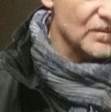Fabrizio Ulivieri's Blog, page 25
December 29, 2024
Quando la vita volge al termine
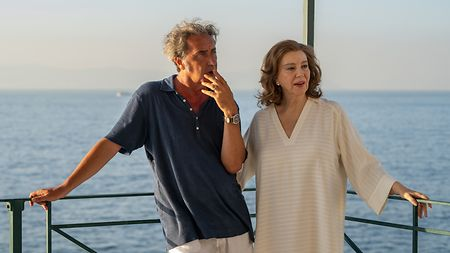
Mi sdraiavo sul divano e guardavo
Crozza - mi faceva rider peraltro.
Ero un altro allora, ma ridevo.
E ora vivo bene? O rimpiango
Quel tempo in cui fuggire volevo?
Ora sogno morti di notte - il giorno
Parlo con loro. Però sono calmo
Tuttavia, ma col pensier attorno
Prego e cerco Dio. Vivo un oblío.
Eppure dentro non cessa quell'ansia.
Mi mangia vivo eterno logorío.E tuttavia sogno. Non è strano?
Quando la vita si volge al termine
Le speranze si dice si divertano.
Perché però non dovrei più sognare?
Si dovrebbe sol preparar la fine?
Dai sogni invece, mi lascio io cullare.
Parthenope - by Paolo Sorrentino

Of course, when you interpret a movie, you express a personal point of view—in other words, what the movie evokes in you.
After watching Parthenope by Paolo Sorrentino, it wasn’t the running of time (the most discussed theme of the film) that struck me. Instead, it was the monster that everyone—Parthenope, the main character—carries within that felt like the film’s most powerful message.
The attraction that everyone (Parthenope) can feel when encountering the Monstrous, the Abnormal, the Ugly, Sin, or even Evil—and deciding to follow it, to experience its savour and pleasure—this, to me, is the movie’s underlying message.
Parthenope is an epic character who journeys through this world (Naples), devoid of these facets because she must experience and understand them. She has no moral restrictions, of course, to prevent her from embracing the pleasure she derives from them.
In my opinion, Parthenope is a Bildungsroman that Sorrentino has masterfully crafted—a Bildungsroman set in Naples.
December 28, 2024
Materia viva vedo
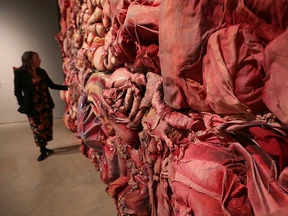
Buio? Nero? Luce? Che poi sarà?
Tutto questo davvero
Sparirà? O per intero
Un modo di guardare cambierà?
O un eterno Oscuro
Cui vado insicuro
Mi prenderà? Più bello lì sarà?
Ormai non è lontano
il passo oltremondano.
Ho paura pero', solo conosco
Un lato e mi preparo
A partir di questo caro
Cielo nel modo migliore che posso.
Uscir di questo dolore
E sofferenza autore.
Tutto crolla qua, da secoli studia
Come - chi vuole erodere
L'uomo e farlo implodere.
Da queste rovine però, s'irradia
Nuova età dello spirito.
Quasi ancor un vagito
Penetra la tenebra nihilista.
E che di certi momenti
ne sento i suoi fermenti
Che entran dentro e lo scherno globalista
dispellen - materia viva
vedo già che me deriva.
December 27, 2024
The Cached World: Matter, Savor and Spirit
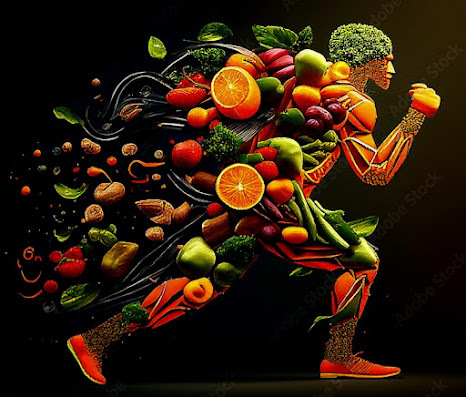
After so many years, I ate rabbit meat yesterday.
That taste in my mouth brought me back to a different matter.
I felt as if an old, forgotten matter was becoming, making me a different world and drawing me into a world I had once set aside—a cached world, left untouched through prolonged abstinence from this grounded savour.
And I wondered!
"Oh my God!" I exclaimed, elated.
How can matter—rabbit meat—open my matter and disclose other matter, buried yet alive within me, which I had forgotten in my living Spirit?
Is the Spirit altered and made, shaped by the matter?
Yes, it is, I realized.
This truth dawns on me every time I fast. When I fast, I perceive my true self emerging, rising from beneath dark layers that obscure my essence. Fasting, like light, disperses them.(How to peel an artichoke: Each leaf you peel off reveals a new, yet already present, part of the original artichoke that once was.)
We often say we are what we eat, but that is not true.
Rather, we are what we have eaten, never what we eat. What we eat distracts us from what we in essence are—from what has prepared us to be—our essence, our ὑποκείμενον, our substratum.
December 26, 2024
Dasein, Power, and Evil: A Critique of Philosophical Neutrality

What is often missing in philosophical discourse is the recognition that not all individuals (Dasein) exert the same level of influence on reality, particularly in terms of shaping or conditioning it.
Some individuals (Dasein) possess the power to condition the existence of others (Dasein) by imposing their ideologies, often forcefully. This imposition is carried out through geopolitical strategies that serve various interests, including:
1) Personal Power
2) Corporate Power
3) Financial Power
These three dimensions ultimately fall under a broader and more insidious agenda (A - Point):
"To introduce and propagate the power of Evil in the world"
Today, this ultimate aim has become increasingly evident in global events.
Philosophical analysts often generalize philosophical concepts as they are universally valid for all existences, but this assumption is flawed. Not every Dasein experiences or exercises the same influence, nor does philosophy operate from a neutral standpoint.
In fact, many philosophers—whether knowingly or unknowingly—have contributed to structuring what I called the "A-Point." For instance, thinkers such as Nietzsche, Hegel, Fichte, Feuerbach, and even Goethe have played significant roles in spreading ideas rooted in Masonry or Gnosticism. These ideologies have culminated in the current state of the world, where what can be described as a "Satanic sneer" has become definitely apparent.
Consider Heidegger and his ties to Nazism. His philosophy, focused on structures rather than individual human beings, casts humanity as entities subjected to an indifferent world, devoiding them of any inherent human value.
December 23, 2024
Una famiglia felice ho reso (poesia sull'umiltà)
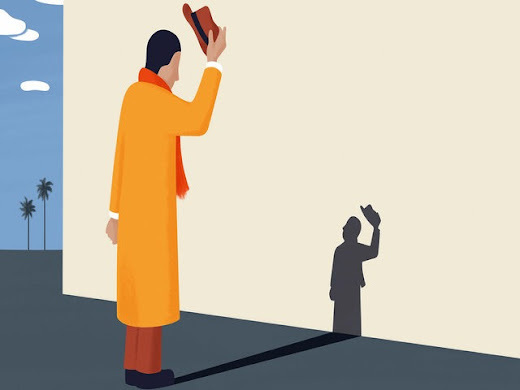
Una famiglia felice ho reso.
Una famiglia piccola e umile
E bella: e quel bello vive in sospeso
Tra luminosa immensa umiltà.
Un sol di luce santa che illumina
E dignidad al ser humano dà.
L'umile vive in estremo perno
Dal qual il mondo vede in cui vive.
Ingenuità lo scherma dall'esterno.
Nell' ingenuità l'umile ha forza
Che lo resiste al mondo maligno
E gli conserva sua propria essenza.
I dèmoni temono l'esser umile.
E sul cuore di madre e di figlie
Il loro danno si fa or instabile.
La piccola famiglia che felice
Ho reso, in un mondo troppo grande
Viveva, che all'umil mai s' addice.
Inviato fui e non sapevo a che prò
Ora però che la piccol famiglia
Reso felice ho - or, sì, lo so.
On Listening to God's Voice: Why and How
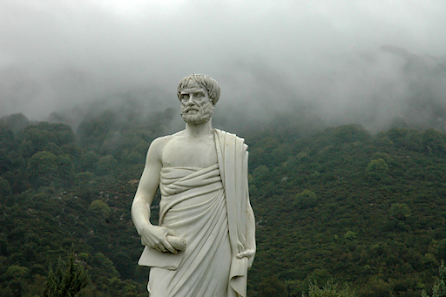
A great many times, I have spoken about an inner capacity we possess: the capacity to listen to God's voice.
It is the ability to discern His voice in the experiences of our daily lives.
But how is this possible? Aristotle, in the Nicomachean Ethics, highlights a profound insight at the very beginning of the work. Even as a non-Christian, Aristotle recognizes the existence of connections—threads that link the reality of this world (ἐν τῷ αἰῶνι τούτῳ, in isto saeculo) to a higher reality, the reality of the Good (which, in Christian terms, we understand as God):
πᾶσα τέχνη καὶ πᾶσα μέθοδος, ὁμοίως δὲ πρᾶξίς τε καὶ προαίρεσις, ἀγαθοῦ τινὸς ἐφίεσθαι δοκεῖ: διὸ καλῶς ἀπεφήναντο τἀγαθόν, οὗ πάντ᾽ ἐφίεται. [1]
“Every art and every method, and likewise every action and choice, seems to aim at some good; for this reason, they have well declared that the good is that at which all things aim.”
Therefore, we must follow these threads or structures that underlie every aspect of reality. In doing so, we will be led to a connection with God's voice.
---------------------------------
[1] Aristot. Nic. Eth. 1094a 1-3
December 21, 2024
Ma il Sé, l'Io, cos'è?
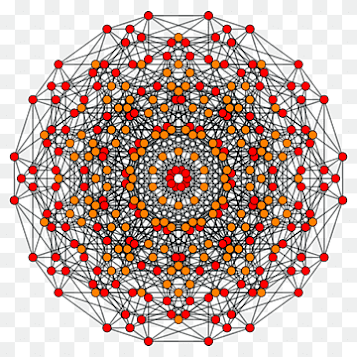
Ma il Sé, l'Io, cos'è? Io son sempre Io
È evidente certezza e non provata
mostrata in apparente brillìo.
La vita tutta è meravigliosa
Se quello che ho fatto ora vedo.
Ma l'idiota che ero la fa odiosa.
Sentivo di lì lo stesso parlarmi
E quella voce e anche quello sguardo
Nel passare di anni mai lasciarmi.
Come al centro stessi di un chiliogono
Guardassi la vita dai mille angoli
Venire a me - spirito tetragono.
December 19, 2024
Mi chiedo spesso che sia lo spirito
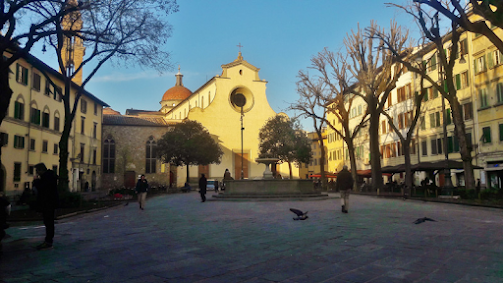 Mi chiedo spesso che sia lo spirito.
Mi chiedo spesso che sia lo spirito.L'anima indefinita idea, pensavo.
Ma poi guardo te nel tuo vivo empito
Gli occhi, la bocca, le mani muovi
Come pieghi il collo inclini la testa
Unica e irripetibile tu provi
che tu sei tu e non un' altra sei.
Non è questo lo spirito per cui
siamo quello che siamo? Oh miei dèi
non è questa la figura dell' anima
che trascende se stessa e si mostra
agli occhi del mondo a sé prossima?
December 18, 2024
Dehumanization

The Church Fathers and Doctors of the Church had one enduring method: the seamless comparison between the experienced reality of the saeculum and the reality of God's Kingdom. This was a continuous inspection of the reality of the saeculum through the sieve of the City of God. This process was carried out with the assistance of the Gospel, Holy Scriptures, and prophecies.
Today, this method has largely disappeared. Only a small number of priests still examine reality through the sieve of God's Word, Holy Scriptures, and prophecies.
As far as I am aware, Don Minutella is one of the few who continues to perpetuate this method. I do not know of any other priests who share this perspective.
Because this method has faded—in large part due to a centuries-long campaign orchestrated by the cooperatores mali (the Enlightenment, Nihilism, Idealism, Modernism, Scientism, and ultimately Globalism and Transhumanism)—the innate capacity to listen to God's Word has been eradicated. The human aspect of Man has been cancelled, and a new, dehumanized humanity has emerged. Humanity, stripped of its divine component, is by its very nature dehumanized.

